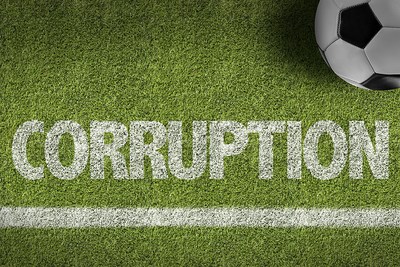 Wherever there is a vast amount of money, someone, somewhere will be up to no good. Add in virtually autonomous power, a system that few people understand and even less get to see behind-the-scenes of and you’ve got something of a nightmare on your hands.
Wherever there is a vast amount of money, someone, somewhere will be up to no good. Add in virtually autonomous power, a system that few people understand and even less get to see behind-the-scenes of and you’ve got something of a nightmare on your hands.
So it is that cases of corruption have enveloped world football and, more specifically, the governing bodies that are supposed to keep things in some sort of order. The precise nature of the corruption that has been revealed in the Fédération Internationale de Football Association, or FIFA for short, is convoluted and complicated. It also developing all of the time, so we’ll update this article as best we can moving forward.
Here we’ll attempt to explain the most recent developments regarding the corruption that appears to be systemic inside FIFA, as well as having a look at other cases and examples of times when football has been less than a straightforward and honest sport.
FIFA Corruption
There is nowhere better to start when exploring the murky waters of football corruption than at the head of the snake itself, FIFA. You would have to be either a hermit who has been living under a rock far far away from everything or else wilfully ignorant in order to have missed the recent news about the organisation and the arrests that have been made, but just in case you’re either of those things, here we go…
Cash-For-Contracts, The Marketing Scandal
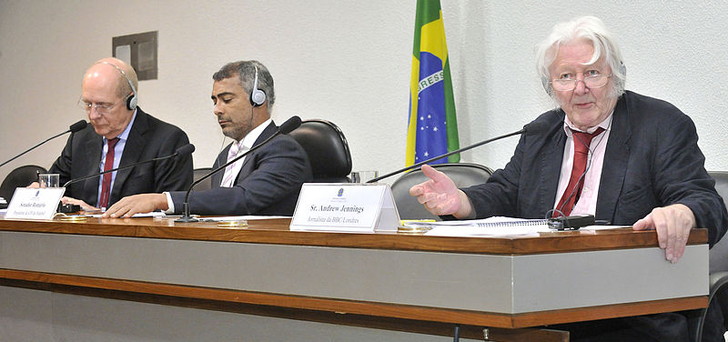
Most sensible football fans have suspected for years that all was not quite above board with world football’s governing body. In May 2006 a British reporter named Andrew Jennings caused shockwaves and controversy when he released a book entitled “Foul! The Secret World of FIFA: Bribes, Vote-Rigging and Ticket Scandals”. He also produced an episode of Panorama with the BBC in which the former chairman of the English Football Association, Lord Triesman, described FIFA as ‘behav[ing] like a mafia family’.
There are three main areas where FIFA officials are accused of being slightly naughty, to understate things a touch, and we’ll look at them individually, starting with the cash-for-contracts scandal that followed the collapse of FIFA’s previous marketing partner, International Sport and Leisure. ISL had been accused of paying large bribes to senior officials at FIFA, namely, Nicolas Leoz, Issa Hayatou and Ricardo Teixeira, from 1989 until 1999. The bribes, according to ISL insiders, were necessary to ensure that the company was awarded the marketing contract for numerous World Cups.
Once ISL collapsed in 2001 – with debts amounting to around £153 million – there was then a free-for-all for various marketing companies that wanted to take over the marketing of World Cups for FIFA. It was such a big deal for the companies because they were able to arrange the sale of TV coverage; something that had a huge amount of money wrapped up in it and that could involve skimming from the top of the pile, so to speak. The allegations suggest that the television rights rigging goes all the way back to 1991, with plenty of money to be made during that time.
For example, the TV rights for showing the 2010 and 2014 World Cup tournaments were bought for $600,000 to a TV company owned by a FIFA member Jack Warner. His company then sold them on to a different company for $18 million, earning a profit of £17.4 million. Not bad work if you can get it. With bribes being paid by companies for the purchase of the TV rights and then the sale of those rights for a huge amount of money, it’s no wonder that so many members of FIFA appear to have been tempted by the forbidden fruit.
The Awarding Of World Cup Hosting Rights
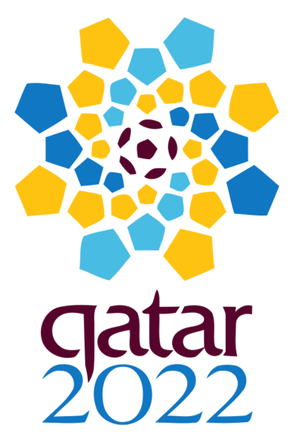
Though numerous investigative journalists had been looking into the dodgy dealings of FIFA for some time, it was perhaps not until 2010 that the entire footballing world sat up and took notice and questioned whether everything really was above board in Switzerland. For it was in 2010 that FIFA announced the countries that had been selected to host the 2018 and 2022 World Cups.
Perhaps, though it seems unfair to say, English journalists decided to kick up a storm about it because England was one of the countries bidding to host one of the tournaments and they lost out. Whatever the reasons, it’s true to say that the fact that Russia was awarded the 2018 tournament and Qatar the one in 2022 caused many to believe that the lunatics had taken over the footballing asylum.
Russia might not seem like too strange a choice for a World Cup and that’s true, especially with Sochi having hosted the Winter Olympics in 2014. Qatar, though, is unquestionably a strange choice for a country to host a World Cup. For starters, the country didn’t even have any football stadiums at the time that it was awarded the tournament. What it did have was sand, heat and lots and lots of money.
The notion of a World Cup in Qatar gets increasingly ridiculous the more that you know and think about it. For example, World Cups are traditionally held in June and July, however the average temperature for those months in the Arab state ranges from 29 to 42 degrees centigrade. That’s really, really hot. Far too hot to play football in or even sit in a ground and watch other people play football in.
Consequently the idea is that the tournament will be played in late November, disrupting the football calendars of every major country in the world. The temperature then will be around 30 degrees, so not exactly cool as a cucumber. For that reason the stadiums will employ cooling technology that is supposed to be able to reduce the temperate by about 20 degrees. There was even talk of fake clouds being created to aid in the cooling and refreshment of players and supporters.
Qatar also has a less than exemplary human rights record, especially when it comes to the workers and members of LGBT communities. The workers on the stadiums have reportedly been denied food and water, had their immigration papers and passports taken away from then and many thousands have also died building the grounds. It has resulted in Qatar requesting that they build just eight or nine stadiums rather than the twelve proposed in the country’s initial bid for the tournament.
So a country that didn’t even have football venues on a continent that had never previously hosted a World Cup was awarded the tournament in spite of the fact that they have a terrible human rights record, don’t acknowledge the rights of homosexuals or gender-aware members of the community and regardless of the fact that it’s too hot to actually play football there. All seems totally above board, no?
It’s not the first time that an accusation over bribes for the hosting of a tournament has taken place, either. Our old friend Jack Warner, a former Vice-President of FIFA, was accused of asking for $10 million from South Africa in order to vote for them to host the World Cup in 2010. He allegedly received the money and distributed it around his companies, though that is denied by Warner and South African officials.
Sepp Blatter
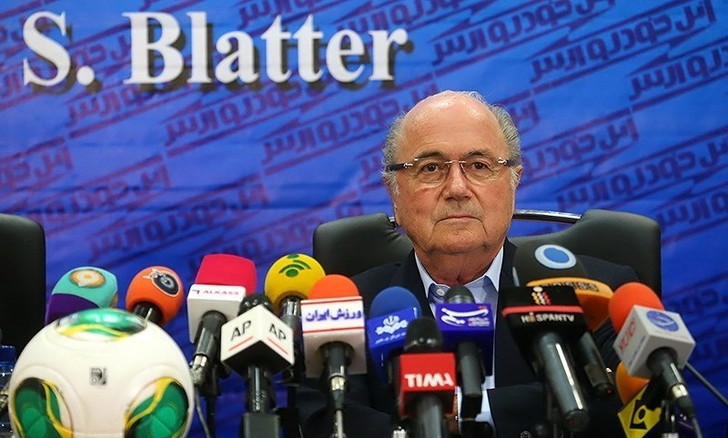
The poisoned apple that so many officials seem to have taken a bite out of comes in the form of Joseph “Sepp” Blatter. Blatter became the General Secretary of FIFA in 1981 before taking over from João Havelange as President in 1998. It is ever since his rise to the top of the FIFA food chain that allegations of corruption have dogged the organisation.
Blatter won four more elections during his Presidency, though not without controversy. From not long after he took office there have been suggestions that plenty of his cronies have furthered their own interests through bribes, cash-for-votes and even money laundering. The man himself has also been responsible for the abandonment of numerous investigations into the dodgy dealings of the organisation he supposedly runs.
Somehow the Swiss administrator managed to avoid being uncovered as a corrupt official for years, most likely because of his determination to increase the influence of countries in Africa and Asia, thereby winning himself support. As FIFA is currently set up, each country that is part of the organisation gets an equal vote on FIFA related matters. As such, the African and Asian countries that have never won a major tournament have as much say in matters as Germany, the country that has appeared in eighteen World Cups and won four of them. In 2015 he was banned from any FIFA related activities for eight years – later reduced to six – by the organisation’s amusingly named ‘Ethics Committee’.
UEFA Corruption
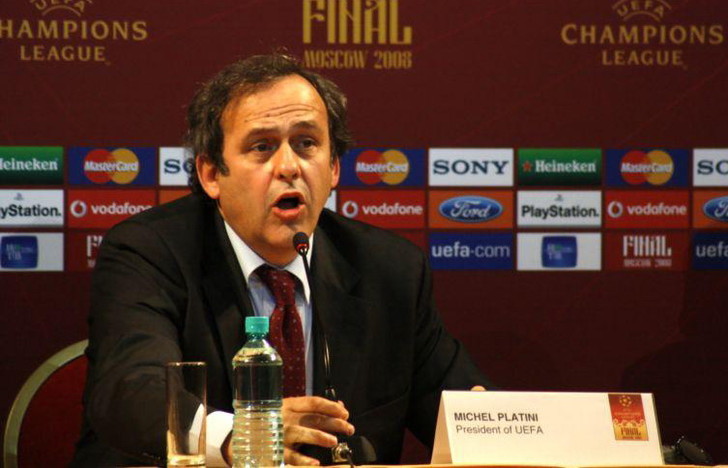
Perhaps unsurprisingly, FIFA isn’t the only footballing body guilty of misbehaviour on a grand scale. It’s European counterpart, UEFA, has also been caught up in the mire of corruption that has swept through world football.
Michel Platini, who was the head of UEFA at the time that Blatter headed up FIFA and the corruption allegations were taking place, had to deny receiving a ‘disloyal payment’ last year. He was paid £1.35 million for, he describes, ‘legitimate consultancy work’. The problem he had, however, was that he received the payment in 2011 – a full nine years after his initial payment for work with FIFA and just three months before Blatter was re-elected at FIFA boss in 2011.
Platini was seen as the natural successor to Blatter as the head of FIFA, but his involvement in those suspicious payments ended any hopes he had of moving to the top of the pile. Along with Blatter he was also banned from any FIFA related activity for eight years, with that also being reduced down to six.
Instead the Presidency of FIFA was awarded to Gianni Infantino, a man who started working for UEFA in 2000 and became the head of the organisation’s Legal Affairs and Club Licensing Division in 2004. He was promoted to General Secretary in 2007 and then the confusingly named Secretary General two years after that. In April of 2016, however, his name was also dragged into the corruption quagmire that had seemed to infect everything it touched.
The now infamous ‘Panama Papers’, which are 11.5 million documents that got leaked and detailed how numerous wealthy individuals used illegal offshore accounts for such things as fraud and tax evasion, revealed that Infantino co-signed papers with a company owned by a man named Hugo Jinkis. Jinkis was indicted in America for £100 million worth of fraud.
The wrongdoing of Infantino in this matter was to do with the same TV rights being sold for cheap and resold for much more money thing that we talked about earlier, though UEFA released a statement saying that at the time it occurred there was no reason to believe there was anything suspicious about the deal. Sufficed to say, it may be harder to find someone involved with either FIFA or UEFA who has not done something wrong over the last twenty or thirty years than it will be to find someone who has.
Other Incidents Of Corruption In The Sport
Of course it is not just the major governing bodies that have been guilty of getting up to no good over the years. In some instances it’s been a one-off, whilst in others it’s been endemic in the culture of the footballing society.
Here we’ll have a look at the best of the rest, so to speak…
Problems In England – The Bung Culture
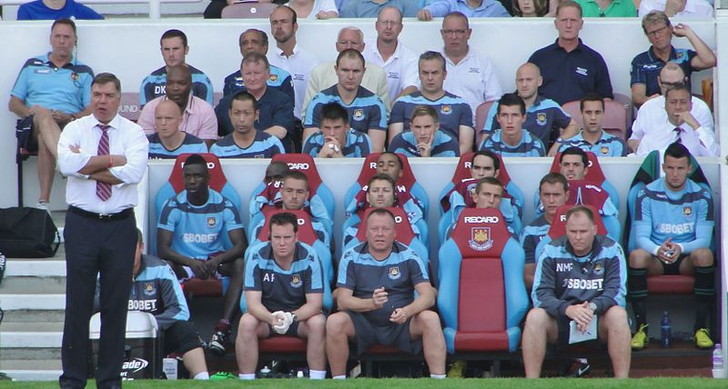
2006 wasn’t exactly a great year for English football as far as the country’s reputation was concerned. Admittedly, after learning about the sort of thing that members of FIFA and UEFA were allegedly getting up to this will all seem like small fry, but it’s hardly impressive nevertheless.
Once again it was a Panorama investigation for the BBC that seemed to reveal the culture of accepting bribes, or bungs, in order to sign certain players was rife in the English game. The then Luton Town manager, Mike Newell and Ian Holloway, who was managing Queens Park Rangers at the time, both admitted that such ‘backhanders’ were common place in the sport.
One of the most implicated people in the whole affair was Sam Allardyce, then the manager of Bolton Wanderers. Two agents, by the names of Teni Yerima and Peter Harrison, were separately filmed in secret admitting that they had paid money to Allardyce through his son Craig in order to get him to sign certain players. “Big Sam”, as he’s known in the game, denied ever doing anything of the sort. Sam was also later caught trying to bypass transfer rules leading to him losing the England managers job.
Kevin Bond, who was the first-team coach of Newcastle United when the report went out, was filmed when he was the first-team coach of Portsmouth admitting that he would discuss receiving a payment from an agent for signing a new player. He was sacked by Newcastle not long after the programme aired.
At Chelsea, concerns over the transfers of Didier Drogba, Petr Čech and Michael Essien were never really answered, with the agent Pinhas Zahavi failing to co-operate with an FA investigation. There were also question marks over the illegal approach made by the club’s then director of youth football, Frank Arnesen, for Middlesbrough’s Nathan Porritt, with the youngster reportedly offered £150,000 over three years to make the move to Stamford Bridge.
Corruption Around the World
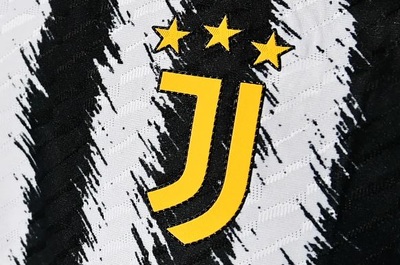 The director of the Institute for the Deaf in the Democratic Republic of the Congo, Nazaire Diabinda, once stated that ‘wiping out football corruption in the Congo is impossible’. In 2005 it was estimated that around £100,000 was being stolen from gate money at Congo games every single weekend – that’s around half the money taken.
The director of the Institute for the Deaf in the Democratic Republic of the Congo, Nazaire Diabinda, once stated that ‘wiping out football corruption in the Congo is impossible’. In 2005 it was estimated that around £100,000 was being stolen from gate money at Congo games every single weekend – that’s around half the money taken.
In Goa in 2004 Wilfred Leisure and Curtorim Gymkhana were vying for promotion out of the country’s Second Division. Wilfred needed by win by seven goals more than their rivals in order to get promoted, so they must have felt pretty good when they took a 55-1 lead over Dona Paula Sports Club. Curtorim officials found out the scoreline, however, and Curtorim went on to win 61-1. All four teams involved in the games were subsequently banned for a year.
In 2006 a probe into corruption in Vietnamese football discovered that up to 150 games, over a period of twenty years, might have been fixed. The league itself was nearly suspended when the majority of teams and players had been banned for corruption.
Finally, In one of the most famous cases of all, Italian giants Juventus were stripped of their previous two Serie A titles in 2006 and relegated to Serie B for their part in fixing matches in the Italian league. AC Milan and Fiorentina were also caught up in the allegations of wrong-doing, with the General Manager of Juve ensuring that the club’s matches were officiated by referees that would be ‘kind’ to his club.
